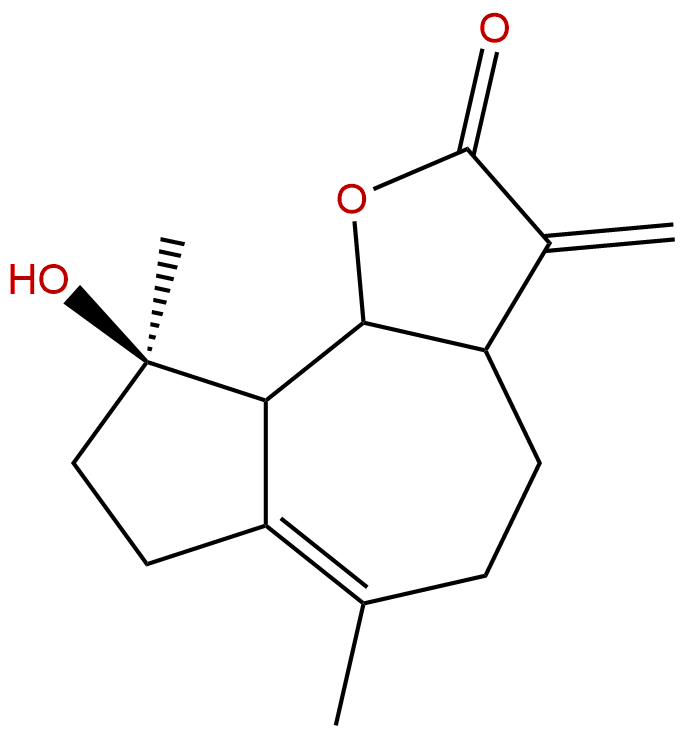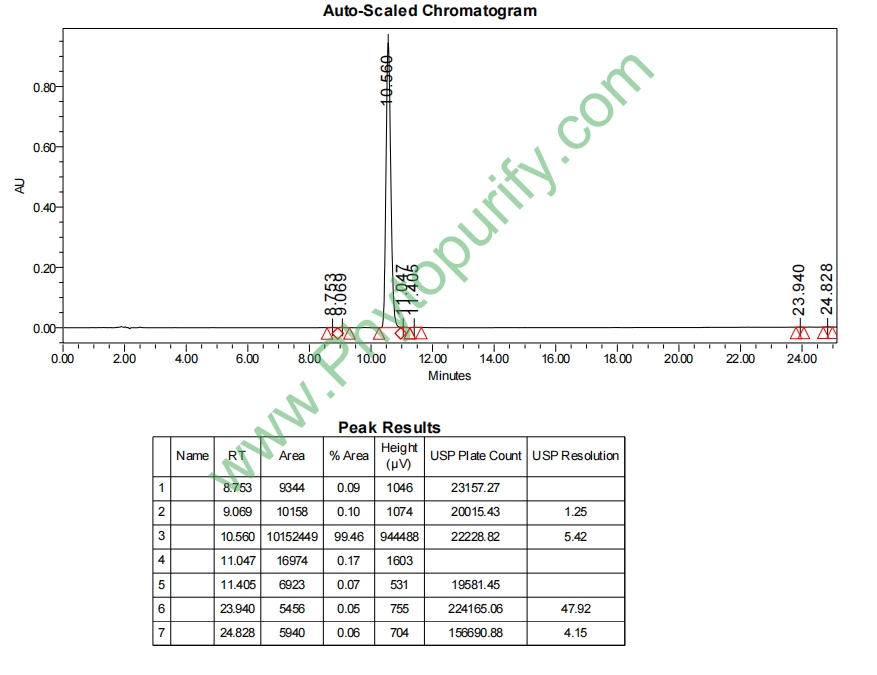
MicheliolideCAS No.:68370-47-8
|
||||||||||
 |
|
|
||||||||

| Catalogue No.: | BP3259 |
| Formula: | C15H20O3 |
| Mol Weight: | 248.322 |
Product name: Micheliolide
Synonym name: MCL
Catalogue No.: BP3259
Cas No.: 68370-47-8
Formula: C15H20O3
Mol Weight: 248.322
Botanical Source:
Physical Description:
Type of Compound: Alkaloids
Purity: 95%~99%
Analysis Method: HPLC-DAD or/and HPLC-ELSD
Identification Method: Mass, NMR
Packing: Brown vial or HDPE plastic bottle
The product could be supplied from milligrams to grams. Inquire for bulk scale.
We provide solution to improve the water-solubility of compounds, thereby facilitating the variety of activity tests and clinic uses.
For Reference Standard and R&D, Not for Human Use Directly.
Micheliolide (MCL) is a guaiacan-type sesquiterpene lactone from natural plants, which is distributed in the root bark of the magnolia family and the root bark of Michelia Formosa. Modern pharmacological studies have shown that Micheliolide has multiple pharmacological effects such as anti-inflammatory, anti-tumor, immune regulation and neuroprotection.
Micheliolide has potential anti-inflammatory biological activity and can be used to treat enteritis, rheumatoid arthritis and other inflammatory diseases. Studies have shown that mimetic lactone can reduce the expression level of inflammatory cytokines by regulating several related signaling pathways such as nuclear factor κB, phosphatidylinositol-3-hydroxykinase/protein kinase B.
Micheliolide can play an antitumor role by inhibiting tumor cell proliferation, regulating tumor cell apoptosis, inducing tumor cell autophagy, inhibiting tumor cell invasion and metastasis. Michelolactone can inhibit tumor cells by activating pyruvate kinase M2.
Micheliolide can improve neuroinflammatory response by reducing the accumulation of Aβ and inhibiting the activation of microglia, and can play A role in the treatment of neurodegenerative diseases by regulating the IκBα/NF-κB, Akt, JNK, MAPK, ERK1/2 pathways and enhancing the activity of Nrf2. Modern studies have shown that miolactone can significantly reduce the number of Aβ plaques, plaque area and microglia in the hippocampal dentate gyrus, CA1 and cortical regions, and inhibit the abnormal activation and aggregation of microglia in transgenic Alzheimer's disease (AD) model mice. At the same time, it can also reduce the number of glial fibrillary acidic protein astrocytes, inhibit the activation of astrocytes, and significantly improve the cognitive impairment of transgenic AD model mice. In addition, neuroinflammation involving microglia is believed to induce brain damage in various neurodegenerative diseases, and inhibiting the overactivation of microglia is beneficial for the treatment of neurodegenerative diseases.
HPLC of Micheliolide
